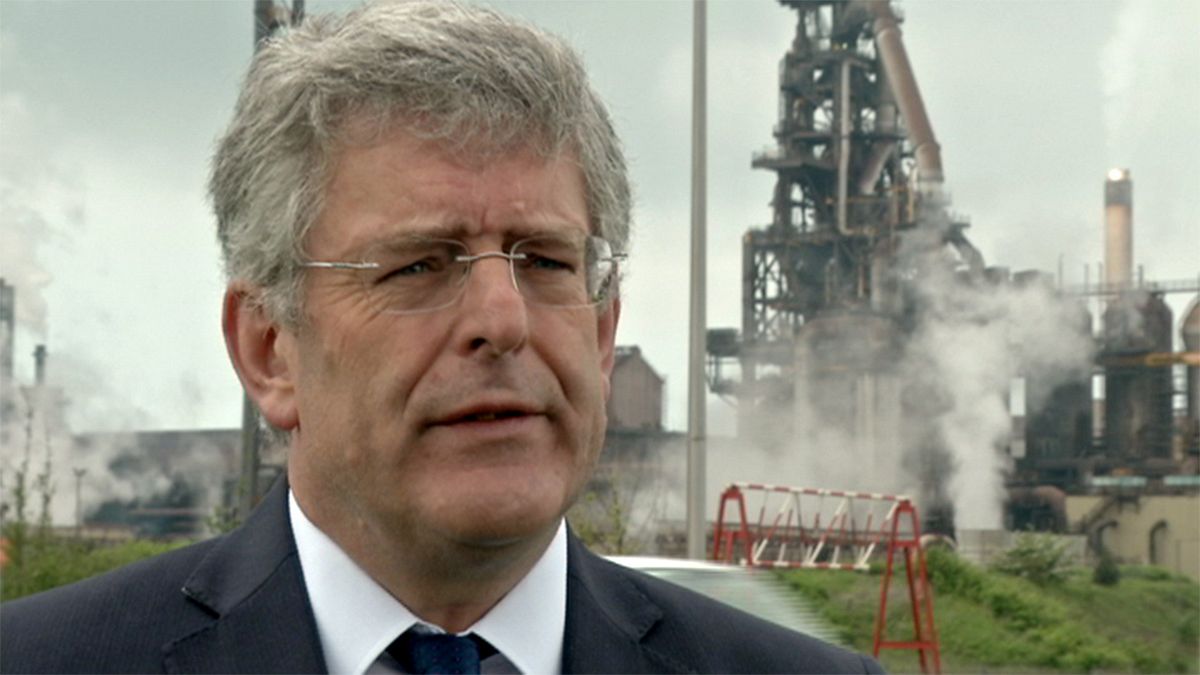David Blackaby is an economist and professor at Swansea University. He feels the steel industry would have more to lose from a Brexit.
David Blackaby is an economist and professor at Swansea University. He feels the steel industry would have more to lose from a Brexit.
The concern for the steel industry in the UK if we left , is that all the economists, whether it’s the governor of the Bank of England, the UK treasury, and the institute of fiscal studies, a very influential think tank, suggested that growth is likely to be slower in the UK. So if the steel industry in the UK supplies steel at the moment to a booming car industry, if the economy slows down, what we know if we move into a recession , people put off those big purchases. You don’t buy a car, you don’t buy a fridge or a freezer, you delay that process. The industries the steel industry feeds into are highly cyclical. So to an extent it could be very bad news in the short term for the steel industry if the UK was to leave.
Some people think the steel industry is a dying industry. In the case of the UK, we consume twice as much steel as we produce. To a certain extent, in the UK we have a massive balance of payments problem. Our balance of payment deficit is 7 percent of GDP. If we lose the steel industry, we lose exports, and we would also get more imports. So to a certain extent, the steel industry is a foundation industry in a manufacture economy. If you want a manufacture economy you need a steel industry.
The issue is you need to produce high value added products. What you need to be doing is investing in your steel industry producing the products of the future. Tata is doing that here. They claim that every Boeing, every Airbus that’s produced has part of Tata Steel UK in the product. We can see Manchester United stadium has got steel from Tata steel on the outside. So what we have got to make sure of is to produce those high value added goods that the economy is going to demand in the future. If we don’t produce them in the UK, we will be importing them from somewhere else.
I think there’s going to be a steel industry of some sort in the UK, whether we remain in or out of the EU. The question is will the economy be growing quicker, and as a result we are likely to have a more successful industry if we remain in the EU. Many firms in this part of the world, whether Sony or others, multinationals, came to this part of the world because of the EU. Because of trading. To a certain extent trade was important. We have the advantage of the English language as well. But to a certain extent, if we leave the EU we’re likely to see inward investment into Wales fall, and inward investment not just in steel, but in the car industry, etc. The steel industry, this plant, employs 4000 individuals in a town of 30000. It’s then estimated that there are 10000 jobs supported by that industry. This industry pays relatively high wages, so the steel industry and communities that depend on the steel industry are likely to be devastated if we left the EU because the markets would tend to be much smaller.
Wales is the only area that at the moment gets the highest level of support from structural funding because the GDP, in part of Wales, over half of it in terms in terms of unitary authorities, is below three quarters of the EU average. When we first received structural funds, the announcement I think was in 2000, the then first minister of Wales said this was once in a lifetime opportunity. Now we’re into the third wave of structural funding. Current structural funding goes from 2014 to 2020. That has supported a massive number of initiatives. Recently a study within a welsh university showed that Wales benefits to the tune of 79 pounds per head a as a result of EU funding. So whilst the argument is made that the UK makes a net contribution to the EU, this area actually gains, because it’s a relatively poor area and it benefits. Since 2000 I think we’ve had 5 billion pounds of structural funds that’s been used to support just down the road in Swansea, the National Waterfront Museum. It’s been used to support infrastructure, road improvement, but a lot of is it used on skills, enabling people to get improved qualification There’s also a youth employment programme, called Jobs Growth Wales, young people have been supported into work. All those programmes have been supported from EU funding
